Becoming a new parent is a wonderful and joyous event. There is much to look forward to, much to learn and you want to make sure your baby is getting all he needs from the moment he is in your arms. Many parents often wonder if their infant is getting enough nutrients from breastfeeding, including organic vitamin C. It plays as much a part in our growing years as babies as it does in our adult lives.
In this article, you will find out more about vitamin C, its role in a young infant’s life, and how much of this important nutrient is required per day as well as the best vitamin C supplements for babies.
Why is natural and organic Vitamin C important for your Infant.
Vitamin C is a water-soluble nutrient. This important nutrient plays a vital role in all the functions of your baby’s body including immunity and the formation of collagen that helps form healthy bones, skin, and teeth. It also functions as an antioxidant, which helps to protect cells from free radicals. Vitamin C binds with these damaging chemicals and renders them less harmful to other tissues. If infants are not getting enough of this nutrient through natural means, a healthcare provider may recommend vitamin C supplements for babies or for nursing mothers.
Daily Vitamin C requirements for Babies.
Young infants should not need to supplement with vitamin C supplements in the same way as many adults do. Vitamin C in its most natural and organic form supplied through breastfeeding should be sufficient enough and meet your baby’s daily requirements. Infant formula also contains vitamin C and if not breastfeeding, your baby’s needs should be met.
For this reason, breastfeeding mothers require a higher intake of vitamin C than other women. They should make sure to get about 120 mg of vitamin C daily from food sources. The usual dosage per day for female adults who are not breastfeeding is on average 75 mg a day. If you suspect a vitamin C deficiency whilst nursing then supplementing with a high-grade premium vitamin C may prove helpful for you and your baby.
Organic sources of vitamin C for babies.
After 6 months a baby can be started on solid foods. Solid foods like organic whole foods offer other nutrients not prevalent in breastmilk that your baby might need at this stage. Your baby will easily be able to get all the vitamin C it needs through a combination of mother’s milk, infant formula, and food. For foods rich in natural and organic vitamin C for your baby, go for strawberries, kiwis, papayas, and cooked broccoli. Buying organic is always a healthier nutrient option for your toddler. Before considering vitamin C supplements for babies or yourself, first, establish if you or your toddler have a deficiency in this nutrient, with the help of your doctor. If so, consider adding vitamin C-rich foods to your diet.
Vitamin C supplements for babies should not generally be needed.
The best vitamin C supplements for babies are always from the mother’s breastmilk itself. All the natural and organic vitamin C it receives through mother’s milk and infant formula should be enough. Supplementing can result in an oversupply of vitamin C in the body. Side effects may include diarrhea, nausea, and even kidney stones. If you suspect a vitamin C deficiency, speak with your doctor about possible causes and supplementation options.
Generally, a vitamin C deficiency is not common but can be a result of scurvy or underlying medical conditions, such as digestive disorders, neurological disorders, or immune issues. Symptoms of scurvy usually include bleeding gums, bruising, tiredness, and irritability. Vitamin C supplements are a viable option if any of these conditions exist. Seek professional medical help first if ever you are in doubt.
Our top picks for organic vitamin C supplements for infants.
If you are intending on using a natural vitamin C supplement for babies or for yourself, first discuss any of the following options available on the market with a pediatrician or doctor.
Elderberry Hill Organics Vitamin C Liquid Drops
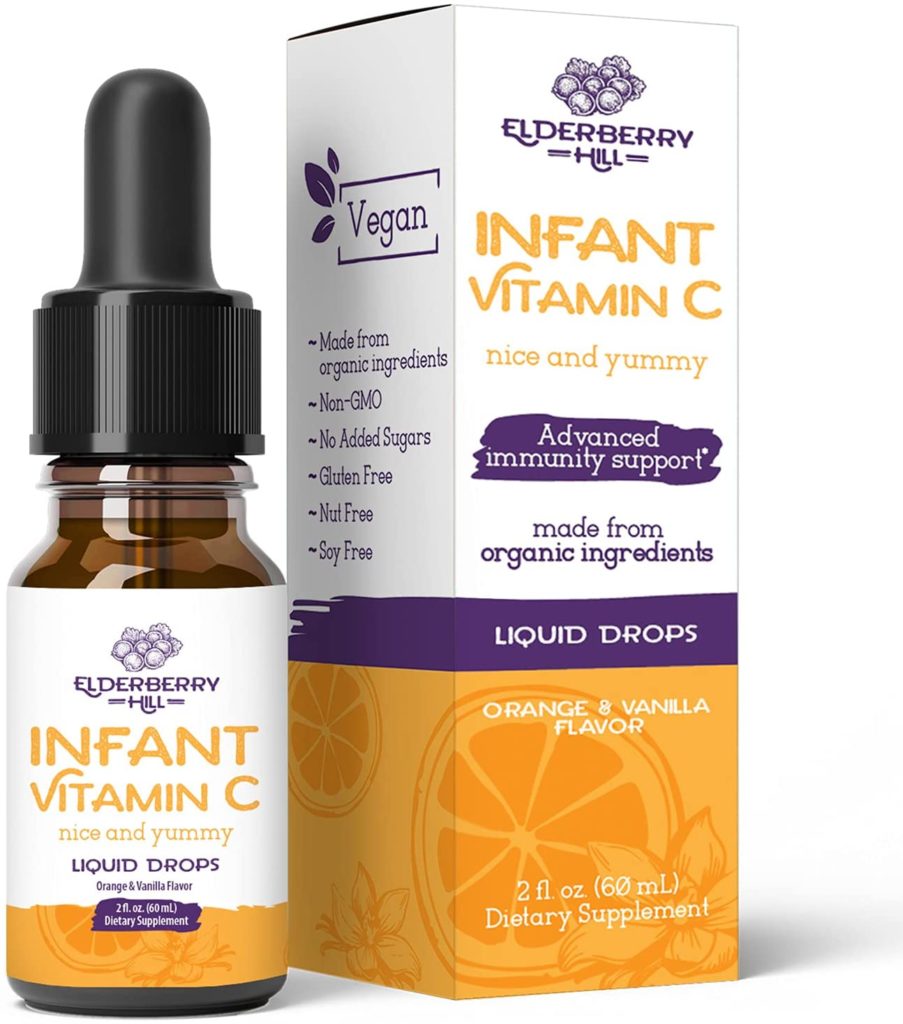
Infant Organic Vitamin C Drops by MaryRuth’s
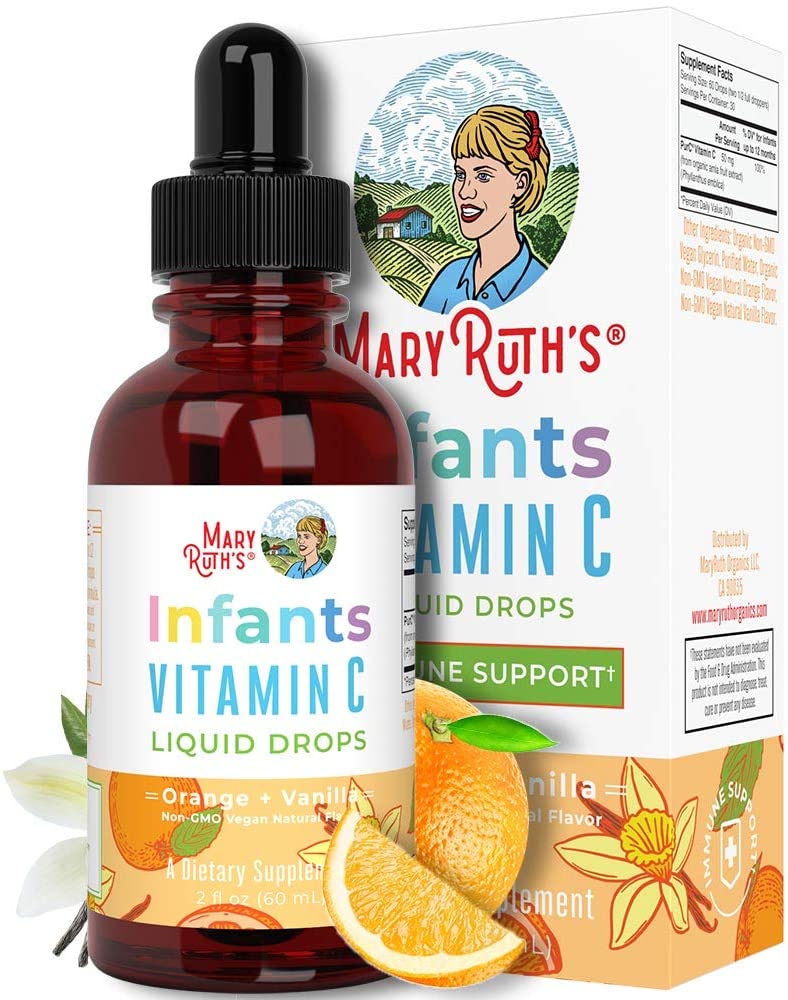
Garden of Life Baby Vitamin C Liquid for Baby’s Immune Support
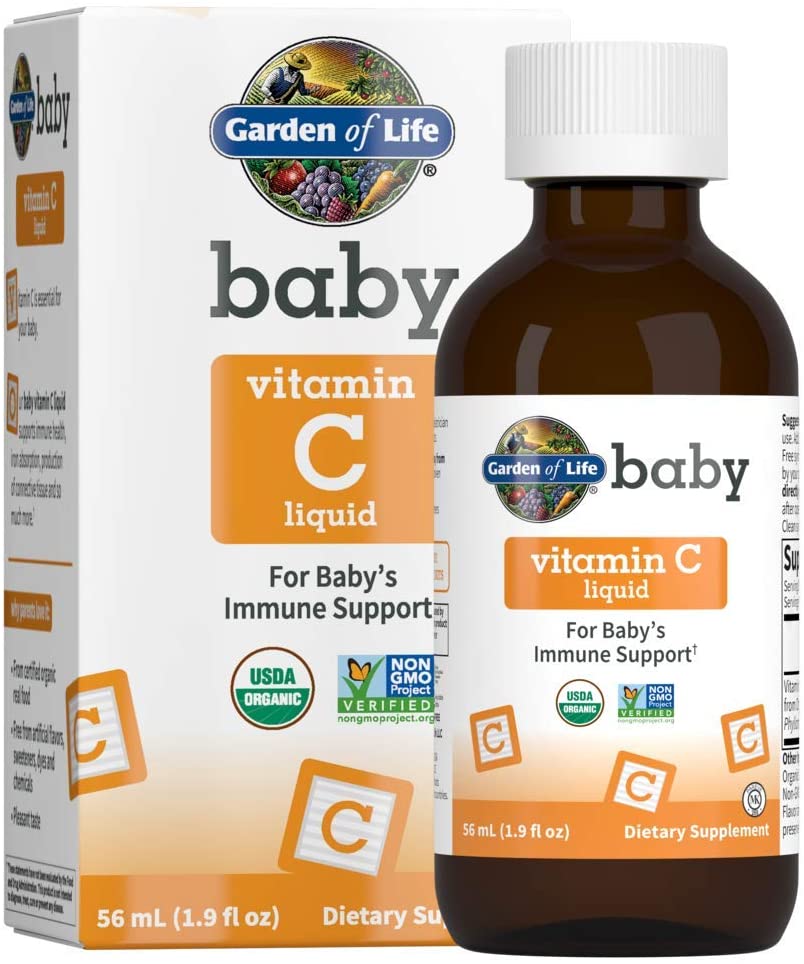
NutraChamps Organic Elderberry Syrup
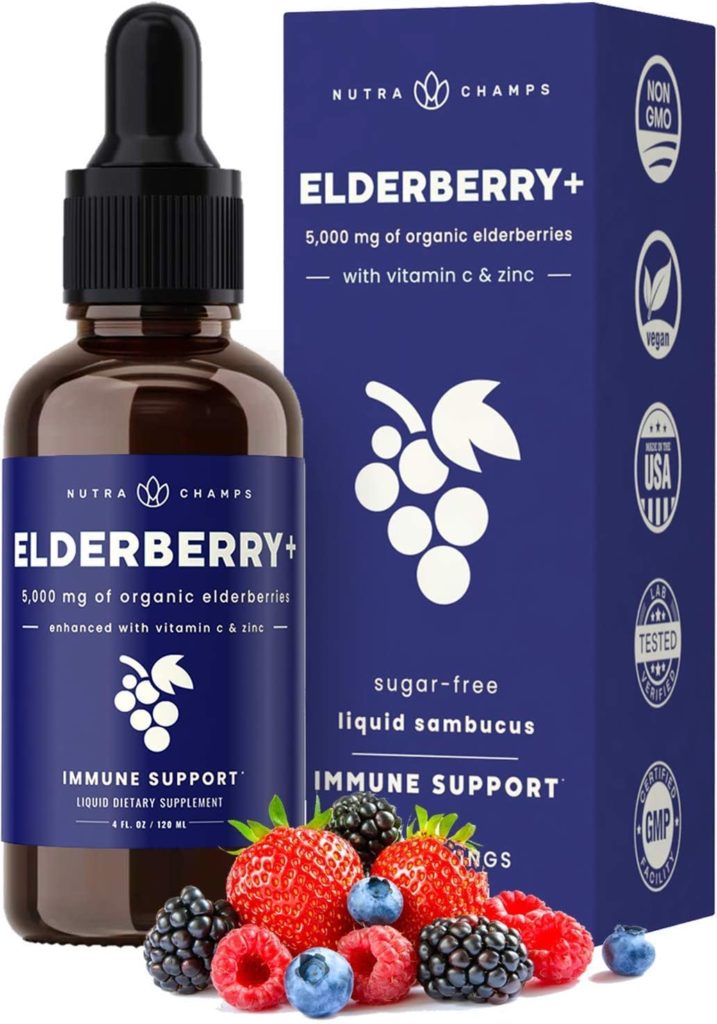
ChildLife Essentials Liquid Vitamin C Immune Support for Infants
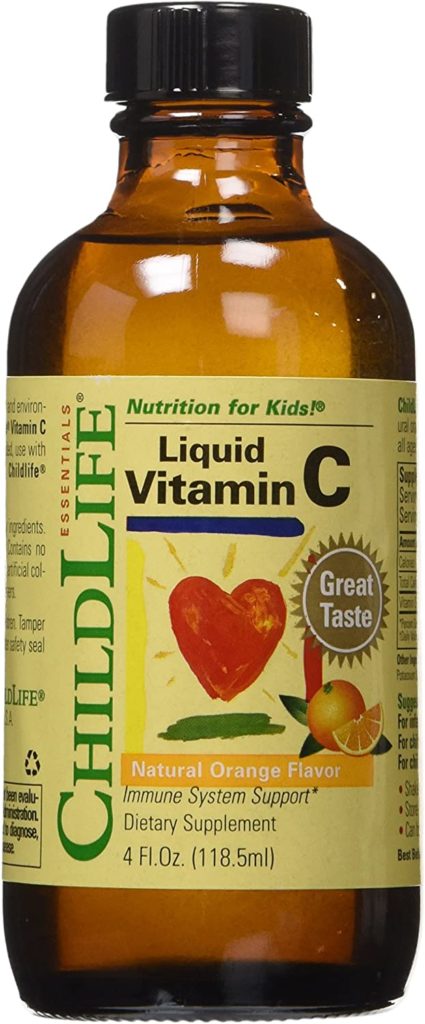
Last thoughts on organic vitamin C supplements for babies
It is important to note that infants and young babies do not need to take vitamin C in supplement form. The best way your little one should take vitamin C is through the most natural and organic way, namely, breastfeeding. It is how your baby gets all the nutrients required for growth and health it needs. Infant formulas are also good sources of vitamin C. Introducing organic whole food sources that are rich in vitamin C, given from 6 months onwards, is a great way for your baby to explore new textures and tastes too. Before supplementation with vitamin C is considered, always speak with your child’s doctor first.
Enjoyed this article? You might like these too:
Best 6 best vitamin C face washes for brighter skin!
Grow your own vitamin C at home with an indoor citrus tree.
Which essential oil contains vitamin C?
Can I take vitamin C supplements before bed?
Where can I get natural vitamin C from?
Disclaimer & Cautionary note: Not any of these statements have been evaluated by the Food and Drug Administration. The content of the articles and the products recommended are not intended to diagnose, treat, cure, or prevent any disease or health issue. The intention is also not to imply that vitamins or any dietary supplements are substitutes for a balanced diet or are in any way more beneficial or superior to dietary nutrients. It is also not intended to imply that the general or normal health of your toddler or yourself may be affected by not taking dietary supplements.
Affiliate Disclosure: Some of the links that appear on this site are affiliate links. We may receive a small commission when you make a purchase. These commissions help to improve this site and to keep it up and running. The buyer does not pay any commission but is an arrangement between the supplier and this site. No product will be recommended that we don
Photo by Kristina Paukshtite from Pexels



